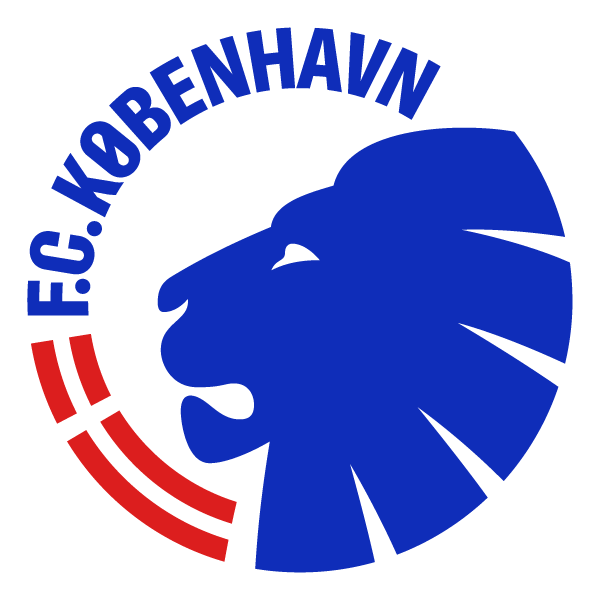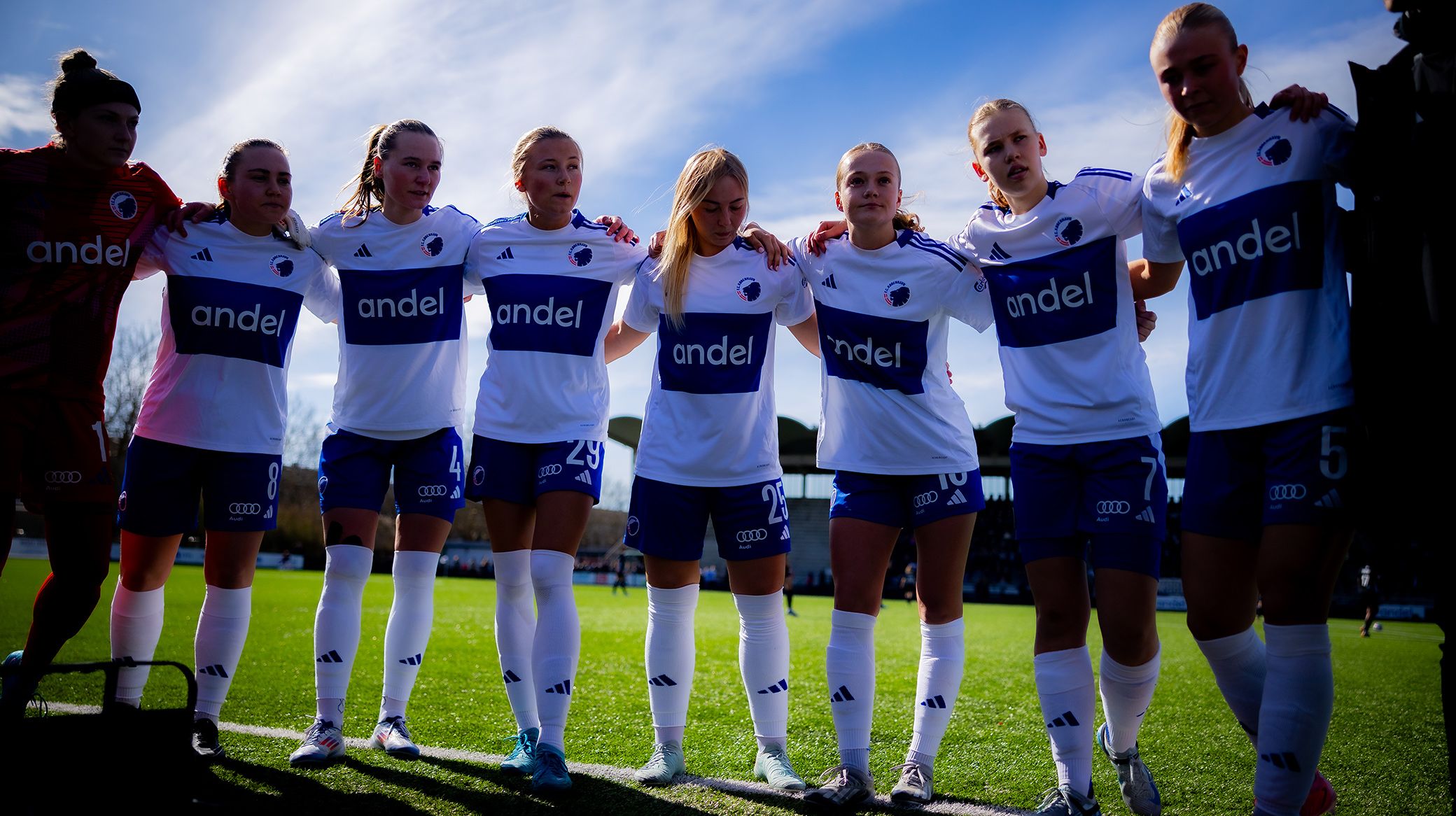
Reflections on one year of F.C. Copenhagen Women
“Intense and educational” was the response from Rebecca Steele, F.C. Copenhagen's head of women's football, when we asked her to give a short headline for the club's first year with a women's football team.
“Hard work, many challenges, great commitment, fantastic interest, support from all sides and – not least – sporting success,” she elaborated.
F.C. Copenhagen's women's team went undefeated through the autumn half of the season, and went into the winter break top of the 2nd Division. This spring, the team is competing in the playoffs for promotion to the 1st Division, and also reached the semi-finals of the Danish Cup.
We thought it was time to sit down with those who have helped make it all happen and reflect on the progress – and impact – made in Copenhagen already.
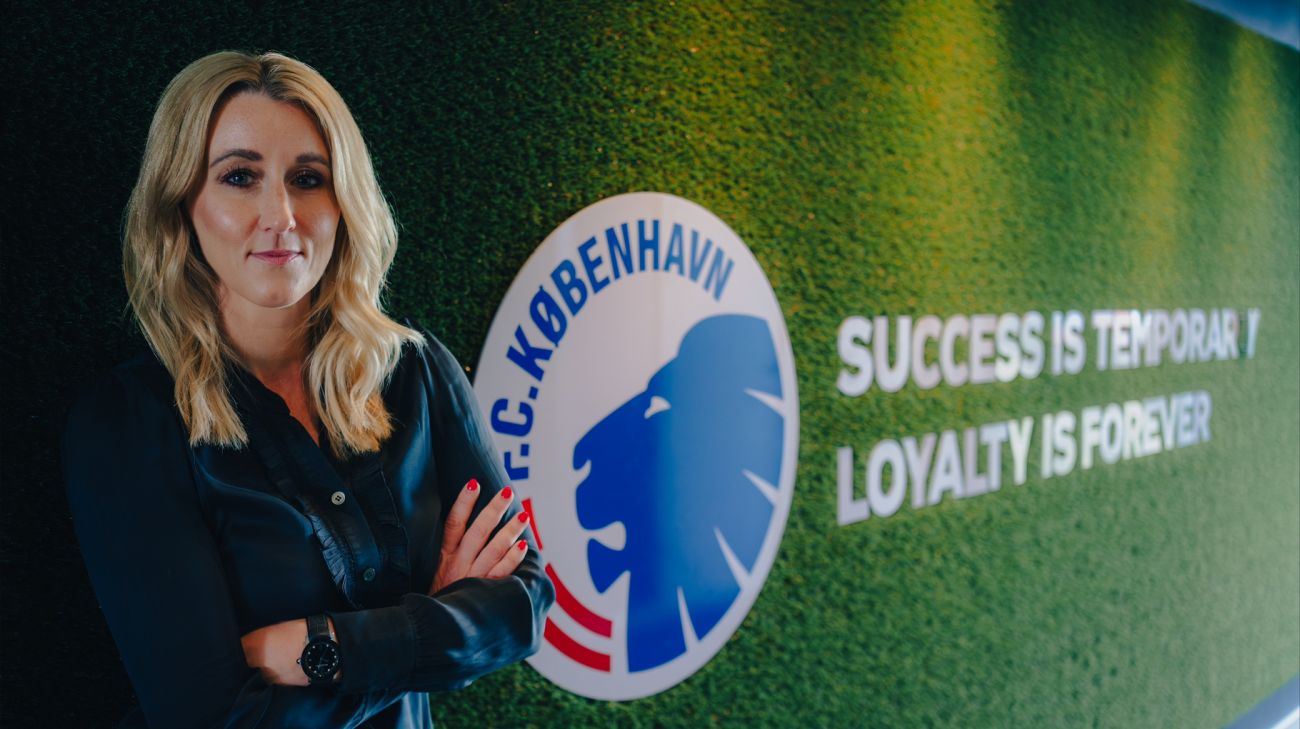
“We are Copenhagen”
F.C. Copenhagen Women launched in 2024 but the plan to create a women's team was in the pipeline long before then.
The board made the decisive decision in October 2022 as part of the club's new strategy for 2022-2027 (“We are Copenhagen”), which included a clear and well-considered ambition to establish a women's team:
"All footballers, regardless of gender, should be able to dream of playing for F.C. Copenhagen and in Parken.
"That's why it's time for us to get involved in women's football and create a team that can play under the club's name and crest. We owe that to women's football in Denmark and the thousands of Copenhagen girls who love football, whether they play for one of our many partner clubs or come to Parken to watch FCK play.
"We can see that Danish women's football is stronger than ever, and we would like to actively contribute to its further development. We're committed to creating FCK women's football within this strategy period, but we are not going to set a deadline here, because we don't want to do it half-heartedly or rush it."
How F.C. Copenhagen Women came about
Rebecca Steele was hired as head of women’s football in January 2023, but it took a year and a half before the women’s team played its first matches in the autumn of 2024.
We spoke to Rebecca about the process.
“It was like being in a small startup company. I sat with a lot of responsibilities at the beginning, until we figured out how to get a team," she said.
“Initially, we thought and hoped to be able to use the fast track model that the DBU (The Danish Football Association) had introduced long before we started our plans. The model, which is also used in other countries, would mean that Superliga clubs could enter one of the top tiers directly with a women’s team. However, in the autumn of 2023, the DBU’s local unions chose not to support the model after a specific proposal had been put to consultation.
“We worked out that it would neither benefit F.C. Copenhagen nor Danish women's football for us to start a women's team from scratch. So, instead we looked for a collaboration with an existing club at the highest or second highest level in Denmark.
“Many clubs had already shown interest when they heard about our plans for women's football, and at the end of 2023 we entered into a collaboration agreement with FC Damsø. A purely women's football club, which we knew well in advance because they were part of F.C. Copenhagen's extensive club collaboration network of approximately 70 clubs in Greater Copenhagen and Zealand.”
FC Damsø's women's team played in the 2nd Division – two divisions below the top tier, the Gjensidige Kvindeliga. Once the agreement was in place, the actual work of creating F.C. Copenhagen Women could begin.
It was a challenge that went far beyond merely finding 11 players to play FCK Women's first match in August 2024. The work required finding solutions in a number of other areas.
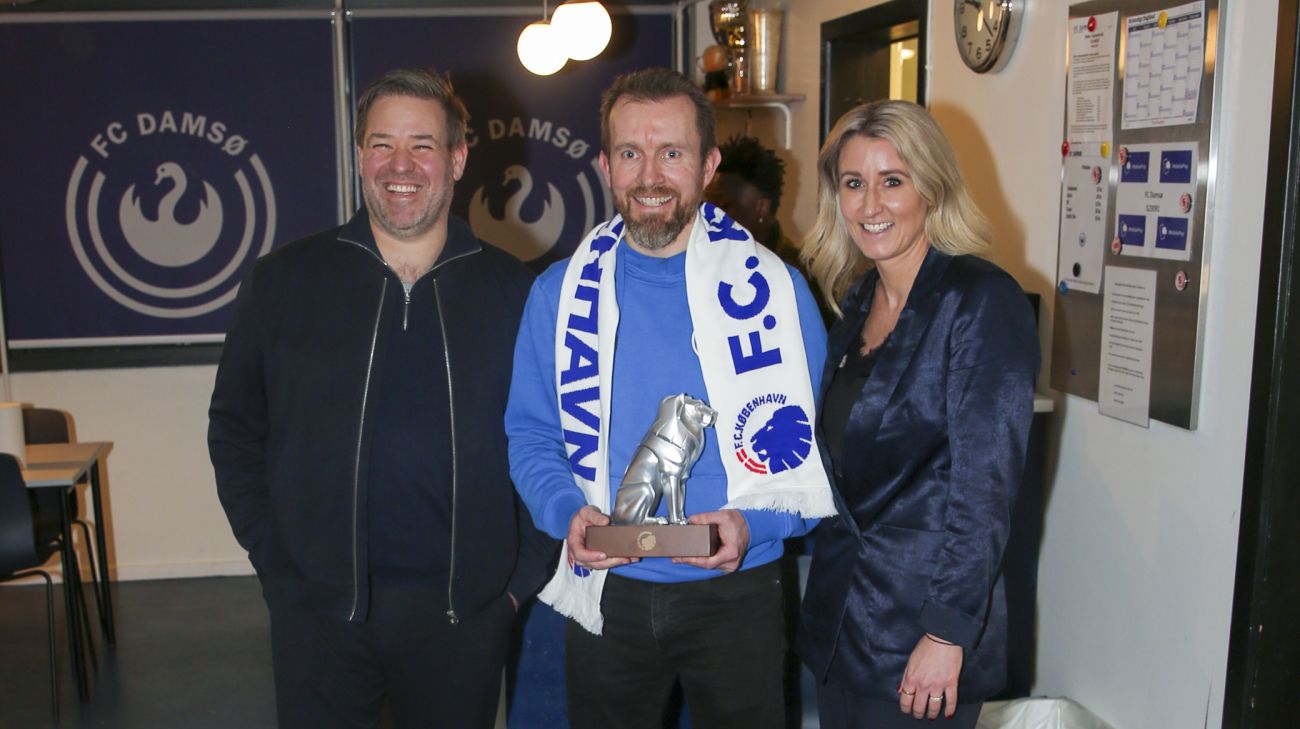
Formal agreements
A cooperation agreement had to be concluded with FC Damsø as the new parent club of F.C. Copenhagen, as well as agreements with the existing parent clubs on the men's side, KB and B1903. Ultimately the DBU had to approve an application for the new cooperation.
Once that was in place, the independent limited liability company, “F.C. Copenhagen Women's Football A/S”, was established. It is 100% owned by F.C. Copenhagen P/S, which in turn is part of the overall group, PARKEN Sport and Entertainment A/S.
Strategic and commercial considerations
Since 1992, F.C. Copenhagen has built an international brand for the men's team, which regularly wins national titles and participates in European club competitions, including six Champions League group stages over the past 18 years.
But how do you combine that with a women's team that also has big ambitions, but which is starting in the third tier level in Denmark?
We spoke to F.C. Copenhagen's director Jacob Lauesen for that answer. He said: “At the same time as launching the women's team, we ran a branding process for the main brand, and we had long discussions about how close the women's team should be to this.
“We didn't just want to create a 'bad copy' of the men's team, which I think some other clubs have done, and where you can't really see the difference. Sometimes the two teams are presented on the same platforms, wear the same jerseys, have the same sponsors, but the women's side is not necessarily adapted to the target audiences, the branding and storytelling that we think is extremely important.
“The whole foundation and self-understanding of F.C. Copenhagen is our intention to do build something new and with real ambition.
“But how do you build something that is different, but not too different? Where there is a visible uniqueness, but with nuanced differences? In the back of my mind, Coca Cola and Coke Zero were good examples, because there's no doubt that they have the same quality, but also differences.
“After a lot of work we decided that the women's team would play under the same name, wear the same badge and the same colours – except that we added a purple shade to the women's team, which the men's team does not use. We have come up with a slightly different shirt design and identity, which we think fits the starting point of our women's team, and the story we want to create.”
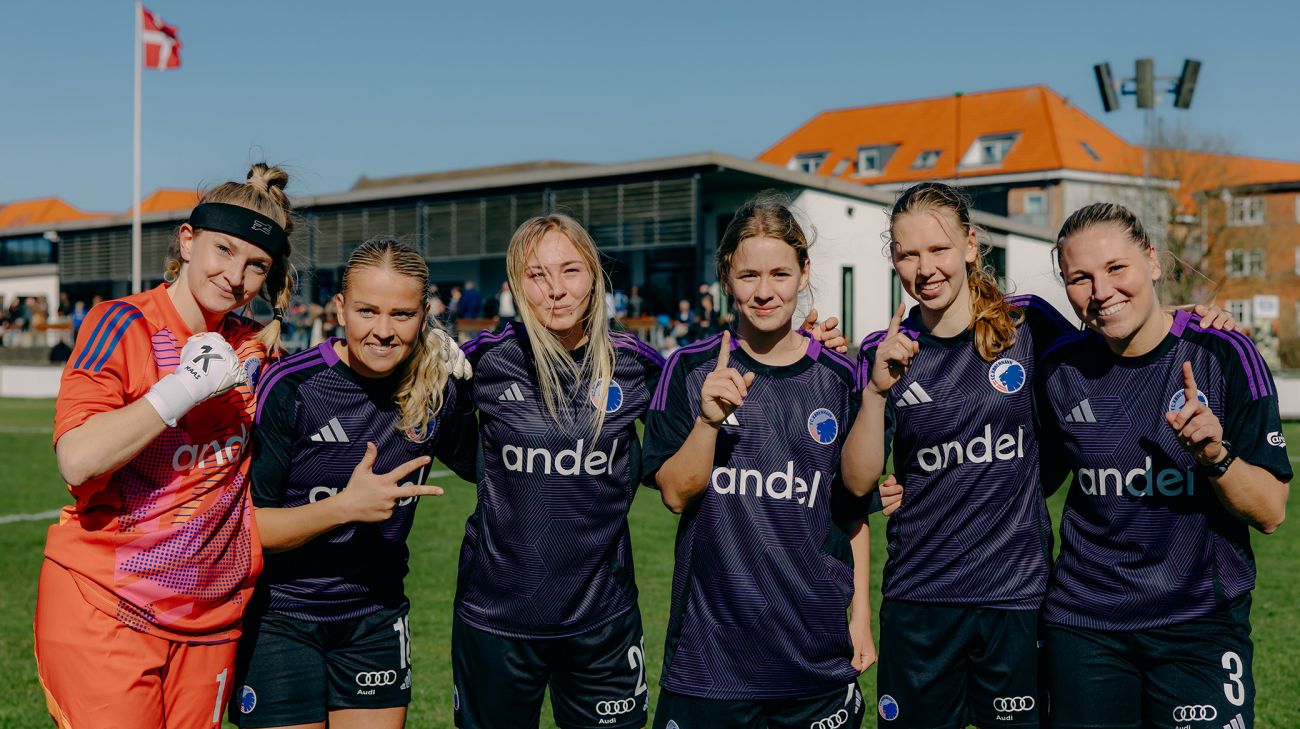
Partners and sponsors
The shirt issue in particular points to other challenges that a large football club like F.C. Copenhagen had to deal with in the spring of 2024.
“Our previous agreements with partners and sponsors were all concluded while we only had a men's team that played at the top international level,” explained Jacob.
“It wasn't fresh news that we were seeking to establish a women's team, but there is a big difference between whether we should start at the highest level or, as the solution now became, at the third tier. We didn't know that until the autumn of 2023.
"Fortunately, our discussions with relevant partners showed strong support for our plans on the women's side. In collaboration with adidas, we developed an F.C. Copenhagen kit for the women's team that, in several ways, related to the men's team, yet remained unique to the women's team.
"It was agreed that the space on the front of the shirts would be included in an agreement with a new Main Partner for the women's team, while Carlsberg would continue to be on the shirt sleeves, just like on the men's team," says Jacob Lauesen.
Andel becomes new Main Partner
When the women's team kicked off the 2024 autumn season, a new Main Partner had yet to be secured.
“There had been strong interest for a long time, but we were looking for a long-term partner, as that was important for our storytelling,” says Jacob.
“This became a reality in early 2025, and by mid-February we announced a great five-year agreement with Andel, Denmark’s leading energy group, as the new Main Partner for the women’s team.
“The agreement not only means Andel’s logo sits on front of the women’s shirts. Together we will develop a range of initiatives over the next five years aimed at opening the world of football to even more women and girls.”
At the same time, F.C. Copenhagen and Andel entered into a strategic and innovative partnership with a focus on the green transition of Parken, Denmark’s national stadium. You can read more about that here.
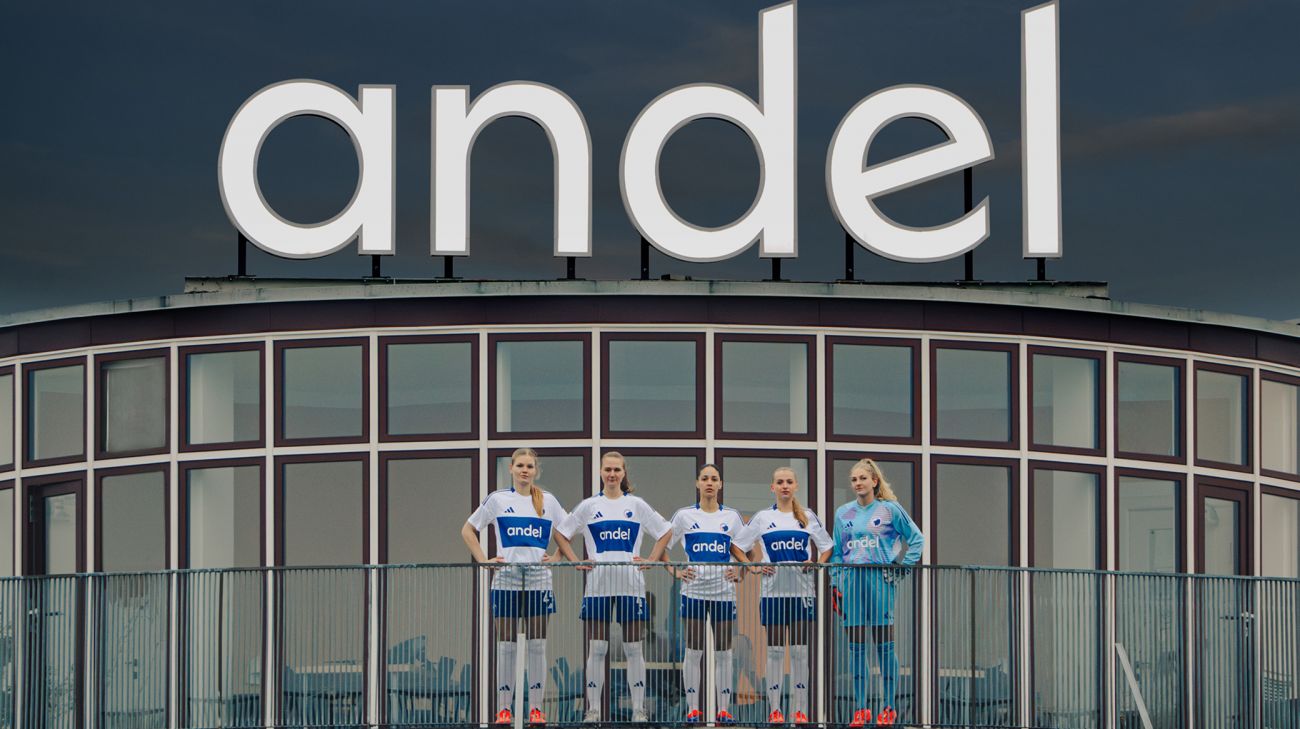
Planet Nusa partnership
Finding partnerships that align with the F.C. Copenhagen Women’s team and the wider F.C. Copenhagen club strategy takes time. Mikkel Grove Lindsted, commercial director at F.C. Copenhagen, explains the process of seeking out new partnerships.
"There was strong support and interest in other segments across F.C. Copenhagen's partner structure,” says Mikkel.
“For example, we are incredibly pleased that we secured a partnership with the Copenhagen-based sportswear brand Planet Nusa, allowing us to offer a wide range of clothing and accessories from Planet Nusa to our fans. The agreement also includes Planet Nusa using their community activities to make football more accessible for girls and women.”
Creating a sports team from scratch
In addition to participating in the commercial department's work with branding, partners and sponsors, Rebecca also spent a lot of time getting the sporting setup in place before the women's team's first matches in August 2024.
"With the fast track model, we would have had to start from scratch, but one of the advantages of the FC Damsø collaboration was that we could build on an existing team with players and staff," said Rebecca.
The ambition was for the team to compete for promotion to the 1st Division. So, in the spring of 2024, several new players were added to the existing FC Damsø squad – some were very young and exciting talents, while others were more experienced players.
"We are investing a lot in developing young players so that in a few years they can perform at the top level both in Denmark and internationally. Starting in the 2nd Division fitted in really well with that strategy, as we hoped that the players could develop in line with the project," said Rebecca.

Kasper Klarskov Nielsen was hired as head coach – reporting to Rebecca – and brought his experience from working in women's football at club level, talent level and from the DBU's talent centre.
Casper Hansen, meanwhile, was hired to gradually build a talent base, which is a more long-term strategy. The ambition is to secure a license in 2027, so that F.C. Copenhagen's talent team can participate in official tournaments.
A girls' talent team aged 12-14 has already been established, and it has attracted so much attention that the team has now been supplemented with a number of boys' players of the same age, so that there is a joint talent team for girls and boys.
We will go into more detail around this concept in a future article.
Overwhelming interest from fans
In addition to the sporting success, there has been overwhelming interest in watching the women's team's home games at Vanløse Idrætspark. It is a stadium on the outskirts of Copenhagen, where FC Damsø also played their home games.
The first home game in August was attended by 5,165 spectators, which is more than double the previous record for a women's game in Denmark (2,204).
“It was very overwhelming, and I didn't expect such a big support,” Rebecca says.
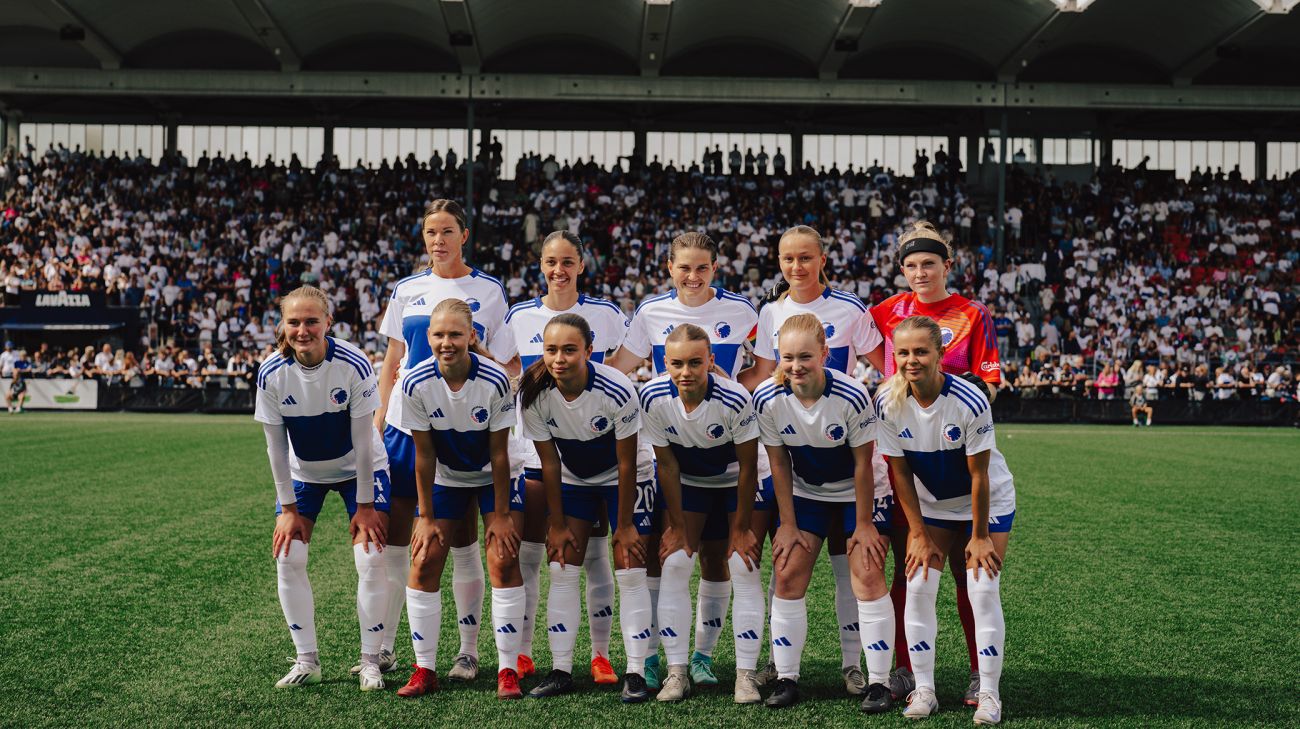
After the impressive attendance at the historic first game, the average for FCK's other home games has been around 1,000 spectators, which is also very good. In the Gjensidige Kvindeliga, the average during the same period was only 363 spectators per game.
“The number of fans is only one parameter, but we have noticed an increasing interest in all areas throughout the autumn, where the players - exactly as we had hoped - have become role models for a lot of fans of all ages. I am really looking forward to seeing how it develops in the future,” adds Rebecca.
“It has also been a very big upheaval for the players. They now have to sign autographs and take selfies, and that there is suddenly media interest in them. You have to get used to that when you've never played in front of anyone but family, friends and a few more spectators before.
“Of course, it also creates a lot of pressure on the pitch. We are very aware of that, but we hope that we can use it positively in relation to our performances, because pressure and interest from fans and media are part of the reality of a club like F.C. Copenhagen.”
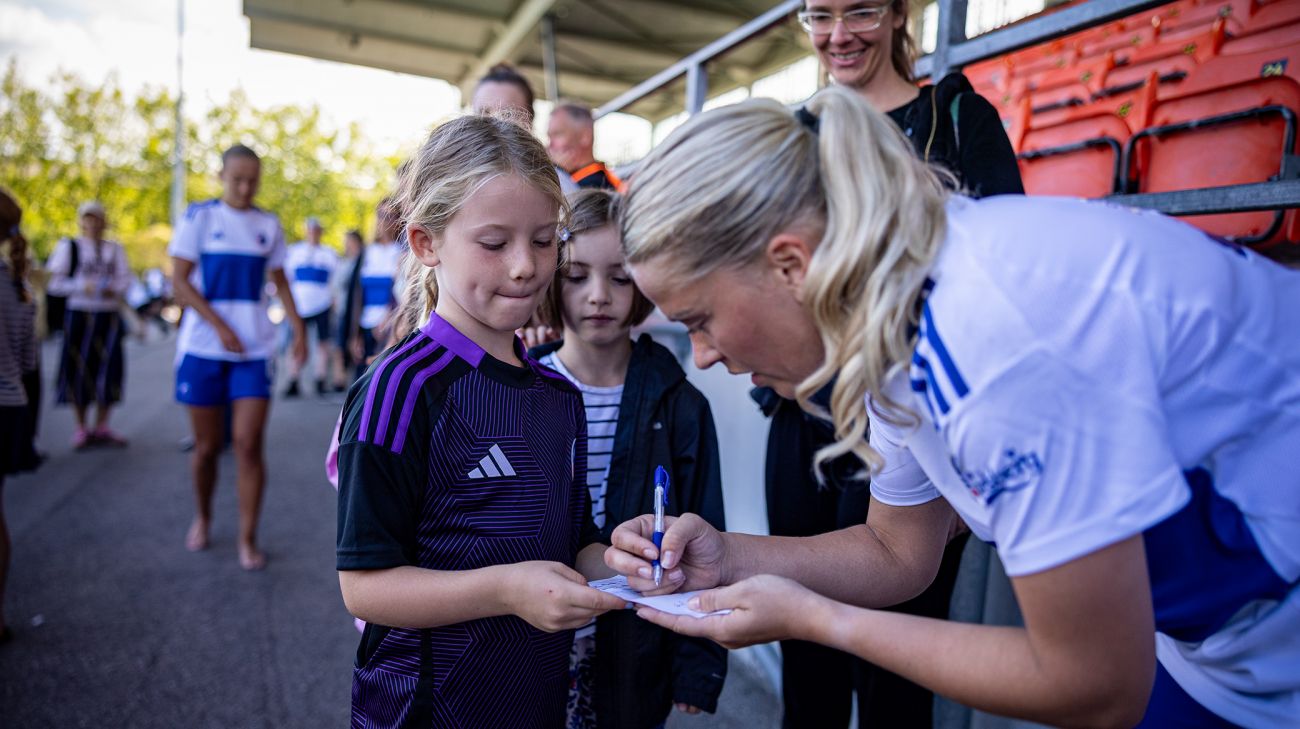
Media and marketing director Mads Jefsen says: “Of course, we have also given a lot of thought to how we cover the women’s team, so we find the right balance in our content, considering that the men’s and women’s teams are at different stages in their development.
“The target audiences for the two teams are not the same. One of our strategic objectives is to build a story that generally helps to increase interest in women’s football and, not least, to inspire even more girls to start playing football.
“But the quality of our content on the women's team must be of the same high level that we are known for, through many years producing content for FCK TV and on social media.”
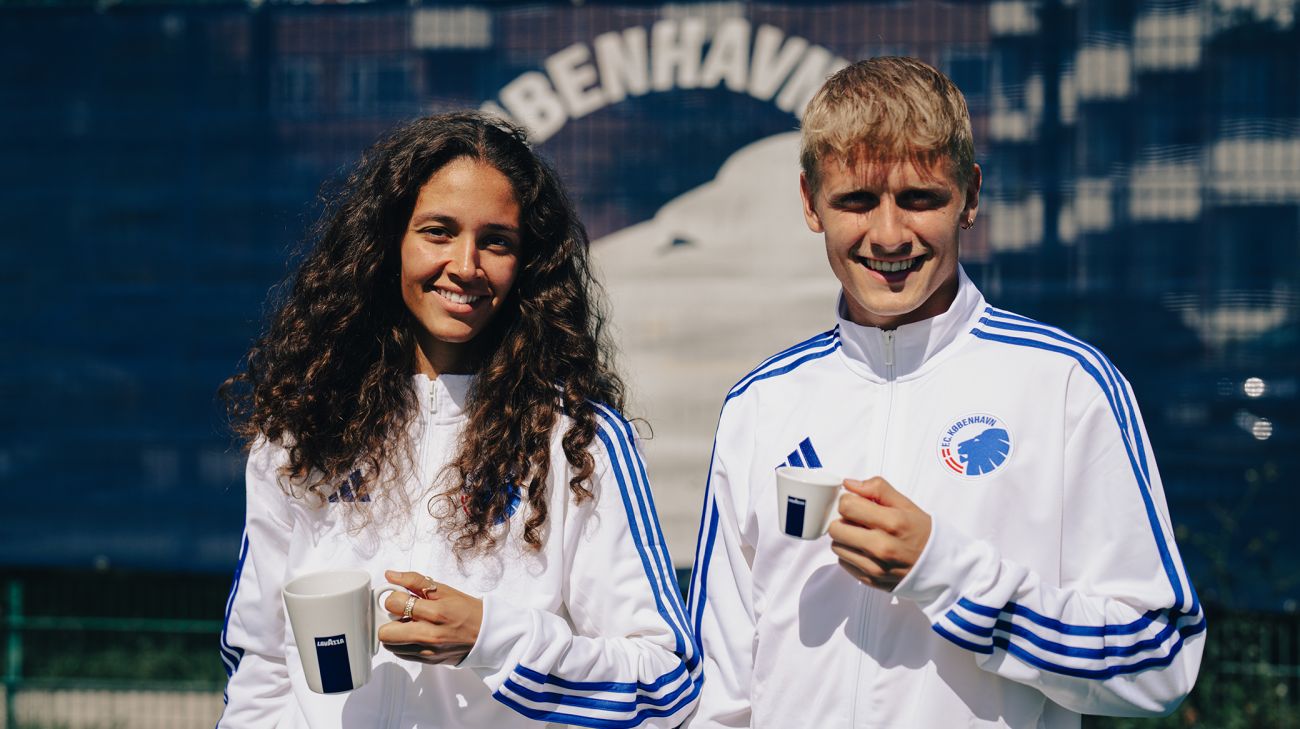
We have only just begun
Jacob adds: “All in all, we believe we’ve got off to a very good start and have achieved a lot in a relatively short time, but there is still a long way to go. Both on and off the pitch. The ambitions are high for the women’s team, for talent development, and for girls’ and women’s football in general across Copenhagen.”
“Of course, it's a goal to get into the top league, the Gjensidige Kvindeliga, and to do that we need to focus on being promoted to the 1st Division this summer.
“We need to finish among the top four teams to make the spring playoffs. There were supposed to be six teams participating — the four lowest-placed teams from the 1st Division and the two group winners from the 2nd Division, of which we are one. Unfortunately, one of the 1st Division clubs had to withdraw, so now only five teams are competing for the four promotion spots.
“We had a great start to the playoffs with a 7-0 away win against Aalborg Freja, who were the other group winners from the 2nd Division. But the success of the women's team does not depend on the results this spring, because we can already see that we are successful in so many other areas related to the women's team. We are also ready to constantly set new, ambitious goals for the benefit of both fans and partners, and also for boosting the presence and impact of girls' football in Copenhagen,” says Jacob Lauesen.
